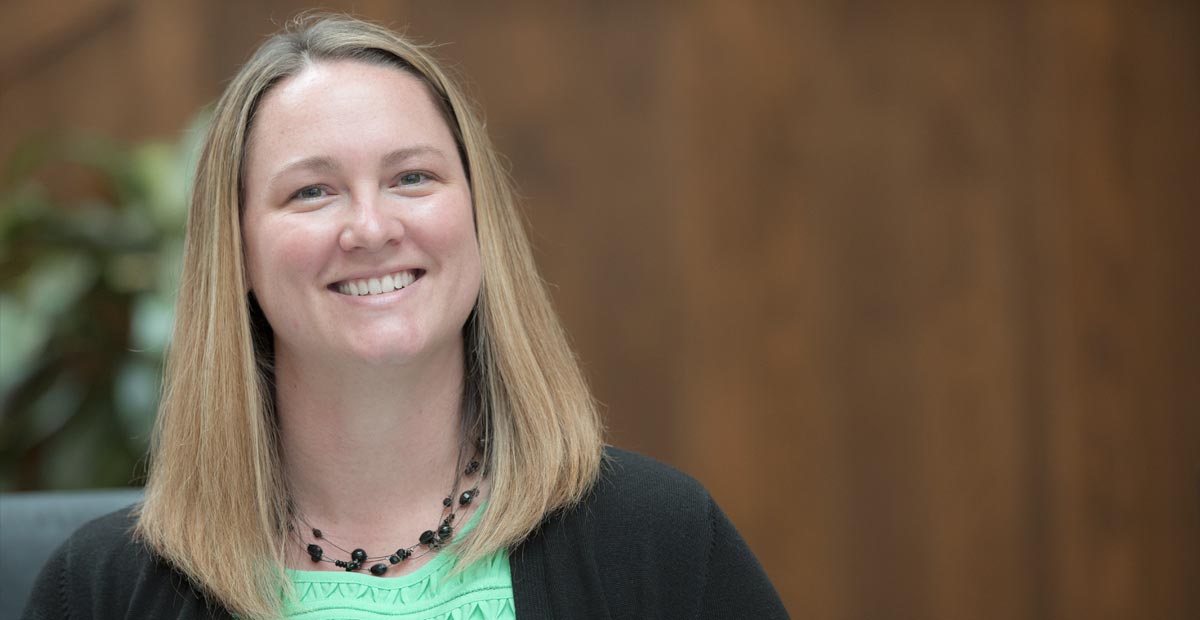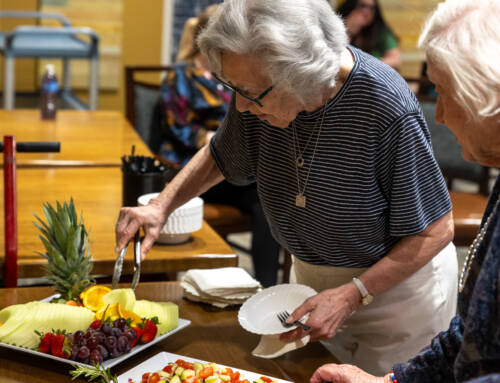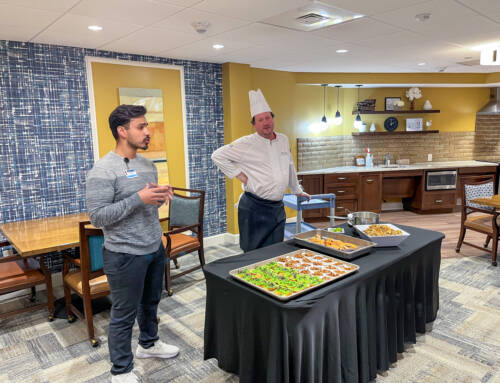Masonic Village hospice nurses tape, hang and pin photos of two kinds on their office walls – photos of family members and photos of special moments with patients.
Ashley Watts is among these nurses and has worked for several years supporting and educating hospice patients and their families. She works as a registered nurse and clinical liaison and is often the first medical professional to access and guide incoming patients and their families.
“I love my job because I get to know patients and families on a personal level,” Ashley says. “I get to help people through some of the most difficult days of their lives.”
Ever since she was a young girl, Ashley was inspired by the women in her family who had chosen nursing as a career, specifically her mother. They showed her nursing was more than learning anatomy, biology and bedside care. It is truly about the comfort of the person you are caring for.
Although nursing was a career that chose her, Ashley chose hospice. “I watched my close friend’s father pass away on hospice, and I knew I wanted to participate in end of life care,” Ashley recalls. Throughout her career in hospice, she has realized how right her family members were. The care she provides centers around the comfort of her patients, which can be difficult at times, as patients aren’t always able to explain their needs.
“You have to think outside of the box to come up with new ways to communicate and provide care,” Ashley says. “These patients and families are often overwhelmed, so it’s important to do the best you can for them.”
Ashley works diligently to explain the hospice process from beginning to end, often sitting side-by-side with family members. “I want families to understand that hospice isn’t about giving up,” she says. “It’s about getting the support you need to make your loved one comfortable while getting support yourself.”
Although she has years of hospice experience under her belt, Ashley still faces the tough feeling of losing patients she’s grown close to.
To this day, Ashley remembers one of her first patients, a woman who made a large impact on her career without knowing it. “At the end of her life, she lost much of her independence,” Ashley recalls. “Her mind was active, so watching her lose her mobility was emotional.”
Regardless of the difficulty, Ashley deems this one of the most rewarding experiences in her career. “In hospice, they say you hit a point in your career where you break down,” Ashley says. “I had that moment with that patient and many others after that, but then you pull it together because people are looking to you for comfort.”
When Ashley’s grandmother fell ill a few years ago, she was able to counsel and educate her family on what her grandmother’s last few days and hours would be like.
“My instinct is to care for and comfort people,” Ashley says, “whether it’s healthy people or dying people, whether it’s my patients or my family.”
Ashley’s hospice experience has encouraged her to spend even more quality time with her husband, who is also a nurse, and their children, whose photos are among those that hang proudly in her office. “My 5-year-old daughter tells us she wants to become a ‘nurse doctor’ one day,” Ashley says. “I think what my husband and I do has had an impact on her, and that’s okay with me.”




